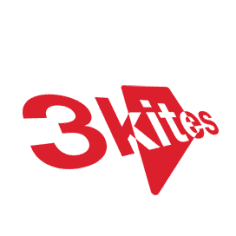Discover recent insights on client-facing knowledge initiatives with 3Kites
Jenni Tellyn and Melanie Farquharson writes:
We attended two events recently (ILTA’s Knowledge Management Special Interest Group meeting and The Future Lawyer conference) which shone a light on developments in how law firms are approaching client-facing knowledge initiatives. These are some of the things we learned.
Buy-in for client-facing knowledge projects
Knowledge teams are constantly striving to raise the profile of the work they do in their firms and to get management buy-in to their initiatives. Working on client-facing projects can be a good way of attracting senior leadership and partner sponsorship by showing that the strategic objectives of the KM team and firm are aligned. It’s clearly important for the KM team to foster a good mechanism for understanding what clients actually want (whether through the partners directly or through their marketing and business development colleagues) and to try to measure the return on investment so the lean KM team resource isn’t over-stretched in delivering marginal client-facing projects on top of their internal-facing work. It is always a difficult business trying to measure meaningfully the impact of KM initiatives, but some firms have, at the very least, asked their people to record time on a discrete code so the effort expended can be quantified, if not the client relationship gains.
Document automation
Opening up the firm’s document drafting automation platform to allow clients to input data directly or to use automated templates the firm generates independently were also discussed. Getting buy-in to these sorts of projects can be challenging, especially if the revenue stream associated with the effort is not immediately visible. This raised an interesting question about how far firms are comfortable charging for their “value added” services and their know-how. Some feel it increases the perceived value of the know-how if a client must subscribe and pay for access to it. The question of how to price in automated processes to the cost of matters undertaken for clients is a thorny one and an area where there doesn’t seem to be consensus across the market as to a uniform approach.
How to serve up client-facing knowledge
The technological mechanisms for enabling client access to knowledge were also highlighted as some firms have started to develop their model from providing extranet client portals containing information to creating shared Microsoft Teams channels to allow clients and lawyers to collaborate in the place where they do their day-to-day work. There are still some technological challenges around the security model and moving smoothly between MS Teams tenants without endless authentication issues but there is hope that these niggles will be ironed out in future and it could help the content being shared to be more readily consumed. This will be particularly helpful as it will avoid the friction of clients having to move between different (and often unfamiliar) platforms which can be a disincentive to using the resources firms provide to them.
Legal training
Legal training is an old chestnut of a knowledge content type to be shared with clients. With the changes in England & Wales to the solicitors’ continuing professional development regime, gone are the days when clients keen on gathering UK CPD points or hours would attend sessions in person in droves in the run up to the practising certificate deadline. Without this CPD incentive in the UK, it is harder for firms to satisfy requests for client training by putting on organised programmes and they risk having to devote greater amounts of time to crafting bespoke sessions for individual clients. Arguably, however, a bespoke training session is often a more meaningful opportunity to connect with a client over issues that are specific to their business and could give the firm access to decision makers with buying power to instruct them. The question remains how to market the training sessions in a scalable way and some firms are now offering non-technical training courses too (for example, leadership or compliance courses) in order to address perceived client training needs without spreading partner time too thin.
Firms offering legal training to US qualified clients have the challenge of running the gauntlet of the byzantine state by state CLE rules. Some have side-stepped the issue of getting legal training sessions accredited by leaving that in the court of the attendees or not badging sessions as CLE eligible in any but the more straightforward states.
Operational support
Some firms are looking at how to support their clients not only on legal matters but also to leverage their business services staff’s expertise in helping meet their clients’ operational challenges. Knowledge Management teams’ experience in organising and enabling user-friendly access to volumes of materials may be in demand as are training teams’ advice on learning programmes. Some firms are also sharing with clients what they have learnt on pilots of legal tech tools or even doing joint pilots with their clients, recognising that clients often don’t have the internal resources to service exploring the developments in legal technology which could support reform of their business processes.
Ultimately, clients are important to law firms so it feels like an area knowledge teams must be involved in. As so often, the success of firms’ efforts to actually achieve the ambition of deepening client relationships and winning work through their client-facing knowledge initiatives depends not on the technology or activities themselves but on the relationships between the actors. Finding out what decision makers at clients need and executing to meet those needs is what it’s all about. As we find ourselves saying so often, it all comes down to people in the end.



